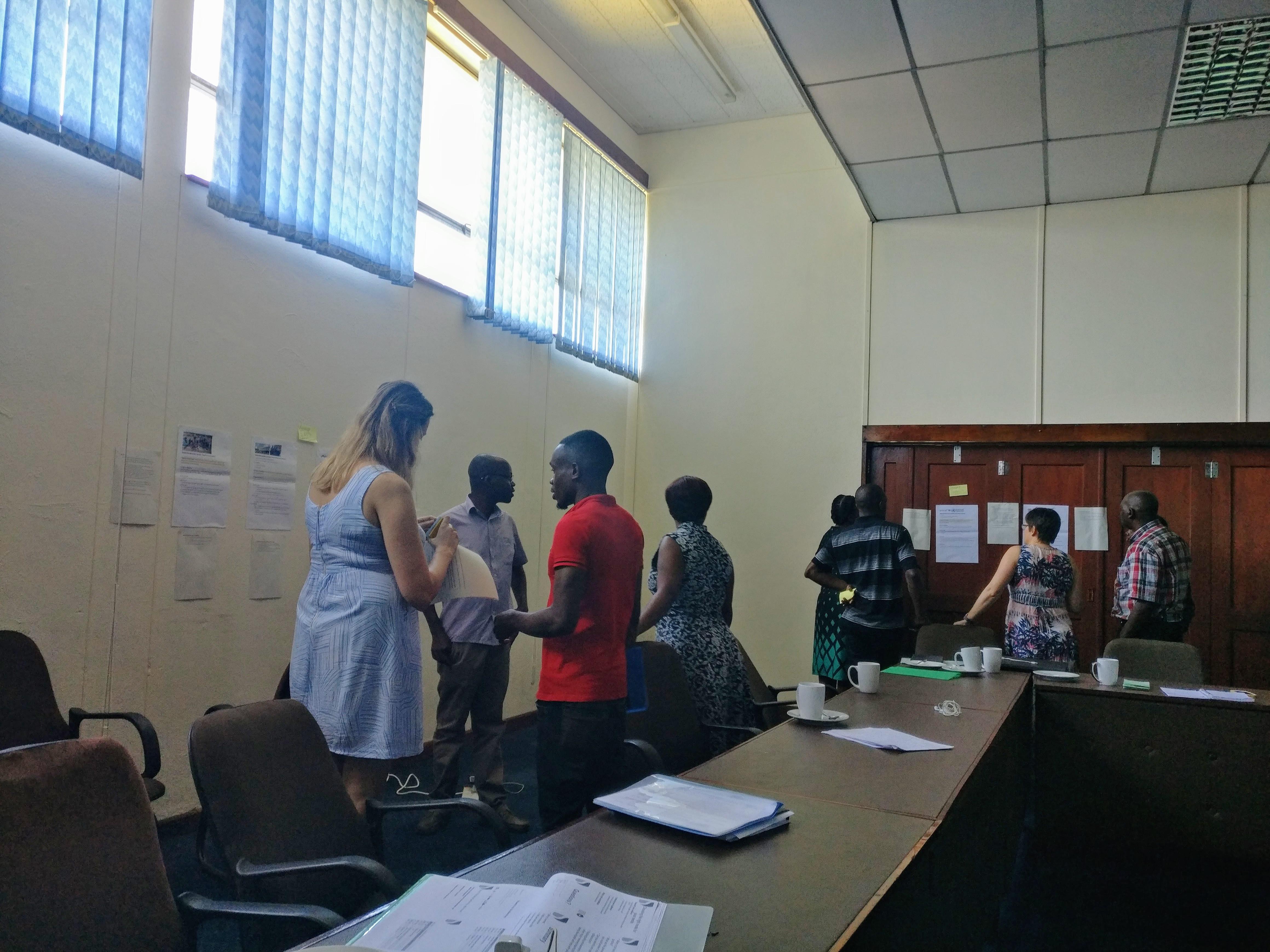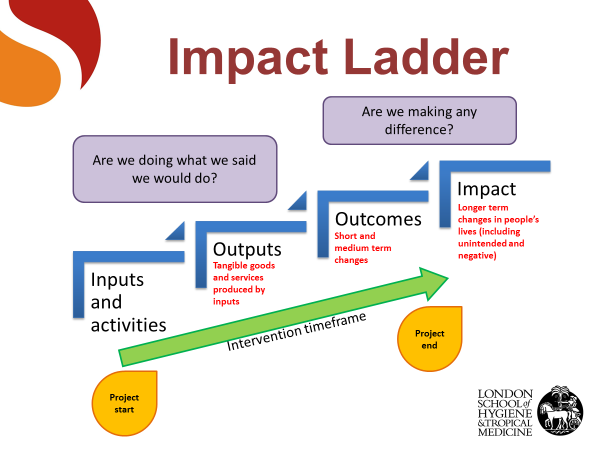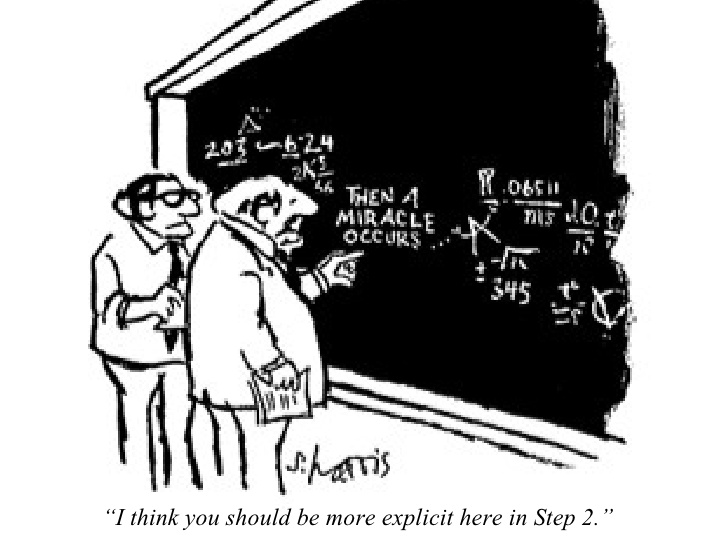Tackling M&E Challenges in Malawi

Emily Balls with workshop participants
Emily Balls, SHARE's Monitoring and Evaluation Officer, reflects on recent workshops with our partners in Malawi...
This month, Sophie Durrans (SHARE’s Research Uptake Officer) and I travelled to Blantyre, Malawi to run some workshops with our partners at the University of Malawi - Polytechnic and with their partners in the WASH and NGO sector in Malawi.
We had a great few days discussing many different aspects of M&E. We started with a dynamic conversation on M&E terms such as inputs, outputs, outcomes, impact and how these are defined differently by various organisations. Typically, outputs mean the goods, products or services produced by your project, outcomes refer to short/medium term change in people’s lives and impact refers to longer term changes in people’s lives. These definitions can vary though amongst different donors, implementers and agencies. Workshop participants agreed that it was important to share your definition in order to avoid misunderstandings among different stakeholders.
The impact ladder was a useful tool to conceptualise and visualise these different levels of change, which are usually also represented in a logframe or Theory of Change. Participants noted that impact or outcome level change often happens near the end of a project, or even after the project has finished, which can be challenging for resourcing M&E.

Some participants highlighted challenges of the logframe approach to projects, noting that sometimes having this rigid structure means we focus our energies on short term change, outputs and quick wins.
One participant noted that sustainability can be forgotten in our quest for impact and suggested that the final step in the impact ladder should in fact be sustainability.
Increasing donor interest in rigorous and experimental/quasi-experimental approaches such as Randomised Controlled Trials (RCTs) mean that programme implementers are under ever more pressure evaluate their work effectively. The group recognised that a RCT or other quasi-experimental approach is not feasible or appropriate to every intervention and can be especially challenging to fund and resource in a low or middle income country.
Outcome level change
We also discussed the challenges of measuring our contribution to outcome level change. The workshop introduced or refreshed participants on emerging qualitative approaches such as outcome mapping, outcome harvesting, scalar tools, contribution analysis and Stories of Change. We also discussed the value of participatory approaches such as Most Significant Change and PhotoVoice.
Phase II of SHARE has been using outcome mapping and Stories of Change to monitor and evaluate its work along with more traditional output level monitoring indicators. While many of these methods are relatively new, they offer potential to gain a deeper understanding of complex change and recognise that change is not always linear, predictable or attributable to a single actor.

Reflections
For me, it was particularly interesting to learn that many NGOs and agencies in Malawi struggle with similar M&E challenges to those that I have been grappling with for SHARE – particularly when it comes to complex research, advocacy and policy work. While there is no one size fits all M&E tool or magic bullet to measuring impact, I’m excited about the increased focus in the sector on diversifying our methods, triangulating different approaches and including rich qualitative data in project M&E.
